Sean Cowen originally shared:
M4 Sherman Tank
I already have my P51 Mustang tattoo as part of my homage to WWII veterans and what they sacrificed for world security. Eventually, it will be a full-sleeve, covering all branches of the US military, and key points of WWII. My next tat is of the M4 Sherman tank.
The M4 Sherman, officially Medium Tank, M4, was the most numerous battle tank used by the United States and some of the other Western Allies in World War II. The M4 Sherman proved to be reliable, relatively cheap to produce and available in great numbers. Thousands were distributed through the Lend-Lease program to the British Commonwealth and Soviet Union. The tank was named by the British for the American Civil War General William Tecumseh Sherman.
The M4 Sherman evolved from the interim M3 Medium Tank, which had its main armament in a side sponson mount. The M4 retained much of the previous mechanical design but put the main 75 mm gun in a fully traversing turret. One feature, a one-axis gyrostabilizer, was not precise enough to allow firing when moving but did help keep the reticle on target, so that when the tank did stop to fire, the gun would be aimed in roughly the right direction.
The designers stressed mechanical reliability, ease of production and maintenance, durability, standardization of parts and ammunition in a limited number of variants, and moderate size and weight. These factors, combined with the Sherman's then-superior armor and armament, outclassed German light and medium tanks of 1939–42. The M4 went on to be produced in large numbers. It spearheaded many offensives by the Western Allies after 1942.
When the M4 tank went into combat in North Africa with the British Army at El Alamein in the autumn of 1942, it increased the advantage of Allied armour over German armor and was superior to the lighter German long-barrel 50 mm-gunned Panzer III and the short-barrel 75 mm-gunned Panzer IV then in service. For this reason, the US Army believed the M4 would be adequate to win the war, and no pressure was exerted for further tank development. Logistical and transport restrictions, such as limitations imposed by roads, ports, and bridges, also complicated the introduction of a more capable but heavier tank.
Tank destroyer battalions using vehicles built on the M4 hull and chassis, but with open-topped turrets and more potent high-velocity guns, also entered widespread use in the American army. Even by 1944, most M4 Shermans kept their dual purpose 75 mm M3. By 1944 and 1945, the M4 was inferior to German heavy tanks but was able to fight on with mutual support from numerical superiority and with support from growing numbers of fighter-bombers and artillery pieces.
The relative ease of production allowed huge numbers of the M4 to be manufactured, and significant investment in tank recovery and repair units allowed disabled vehicles to be repaired and returned to service. These factors combined to give the Americans numerical superiority in most battles, and many infantry divisions were provided with M4s and tank destroyers. A M4A3E8 variant was introduced, with improved suspension and a high-velocity 76 mm gun as used on the tank destroyers.
*After World War II, the Sherman, often in updated versions, saw combat in many conflicts, including the Korean War, the Arab-Israeli Wars, and the Indo-Pakistani War of 1965.
#worldwarii #shermantank #tank #militaryhistory #wwii #alliedpowers
via/ http://ift.tt/2cVJ7St
image By Joost J. Bakker - M4 Sherman tank, CC BY 2.0, http://ift.tt/2utxFWG
I already have my P51 Mustang tattoo as part of my homage to WWII veterans and what they sacrificed for world security. Eventually, it will be a full-sleeve, covering all branches of the US military, and key points of WWII. My next tat is of the M4 Sherman tank.
The M4 Sherman, officially Medium Tank, M4, was the most numerous battle tank used by the United States and some of the other Western Allies in World War II. The M4 Sherman proved to be reliable, relatively cheap to produce and available in great numbers. Thousands were distributed through the Lend-Lease program to the British Commonwealth and Soviet Union. The tank was named by the British for the American Civil War General William Tecumseh Sherman.
The M4 Sherman evolved from the interim M3 Medium Tank, which had its main armament in a side sponson mount. The M4 retained much of the previous mechanical design but put the main 75 mm gun in a fully traversing turret. One feature, a one-axis gyrostabilizer, was not precise enough to allow firing when moving but did help keep the reticle on target, so that when the tank did stop to fire, the gun would be aimed in roughly the right direction.
The designers stressed mechanical reliability, ease of production and maintenance, durability, standardization of parts and ammunition in a limited number of variants, and moderate size and weight. These factors, combined with the Sherman's then-superior armor and armament, outclassed German light and medium tanks of 1939–42. The M4 went on to be produced in large numbers. It spearheaded many offensives by the Western Allies after 1942.
When the M4 tank went into combat in North Africa with the British Army at El Alamein in the autumn of 1942, it increased the advantage of Allied armour over German armor and was superior to the lighter German long-barrel 50 mm-gunned Panzer III and the short-barrel 75 mm-gunned Panzer IV then in service. For this reason, the US Army believed the M4 would be adequate to win the war, and no pressure was exerted for further tank development. Logistical and transport restrictions, such as limitations imposed by roads, ports, and bridges, also complicated the introduction of a more capable but heavier tank.
Tank destroyer battalions using vehicles built on the M4 hull and chassis, but with open-topped turrets and more potent high-velocity guns, also entered widespread use in the American army. Even by 1944, most M4 Shermans kept their dual purpose 75 mm M3. By 1944 and 1945, the M4 was inferior to German heavy tanks but was able to fight on with mutual support from numerical superiority and with support from growing numbers of fighter-bombers and artillery pieces.
The relative ease of production allowed huge numbers of the M4 to be manufactured, and significant investment in tank recovery and repair units allowed disabled vehicles to be repaired and returned to service. These factors combined to give the Americans numerical superiority in most battles, and many infantry divisions were provided with M4s and tank destroyers. A M4A3E8 variant was introduced, with improved suspension and a high-velocity 76 mm gun as used on the tank destroyers.
*After World War II, the Sherman, often in updated versions, saw combat in many conflicts, including the Korean War, the Arab-Israeli Wars, and the Indo-Pakistani War of 1965.
#worldwarii #shermantank #tank #militaryhistory #wwii #alliedpowers
via/ http://ift.tt/2cVJ7St
image By Joost J. Bakker - M4 Sherman tank, CC BY 2.0, http://ift.tt/2utxFWG
from John Currin (JC 's Naval and Military) - Google+ Public Posts http://ift.tt/2uta8Fh
via IFTTT See all here - http://ift.tt/2s3djVQ




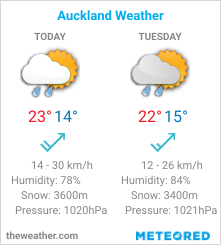
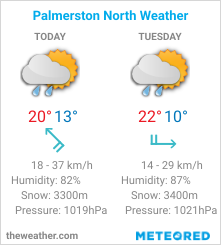
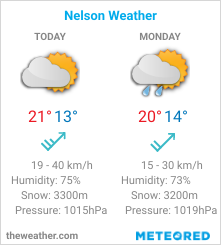
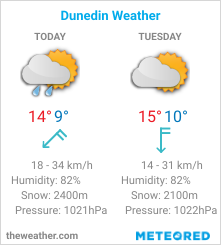
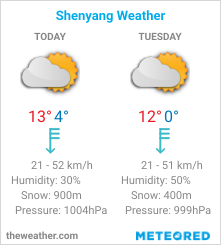
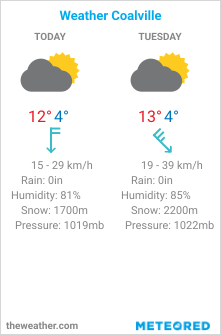
No comments:
Post a Comment
How did you like the post, leave a comment. I would appreciate hearing from you all. Best wishes from JC's Naval, Maritime and Military News